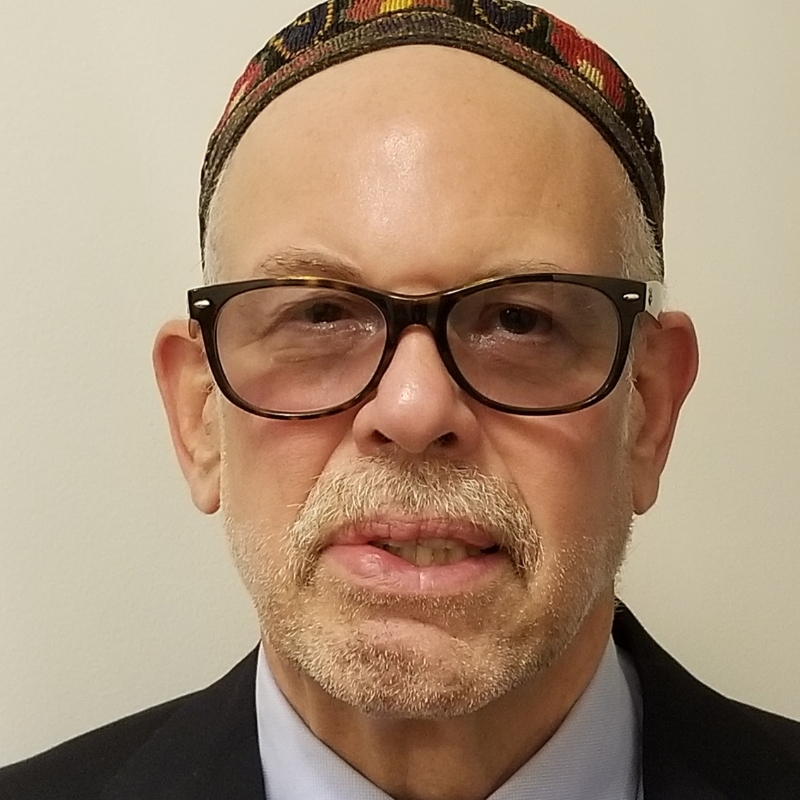Proverbs 31:9 demands that we “speak up, judge righteously, and be a champion for poor and needy persons.” Maimonides (Mishneh Torah, Hilkot Matenot Aniyim 10:7-14) asserts our responsibility to feed hungry people and to help persons in need become self-sufficient.
God judges society, more than individuals. The Torah teaches that God judges us on how we meet our societal responsibility to provide for orphans, widows, people who have been reduced to poverty, and the strangers in our midst — the most vulnerable people in society. Our government has taken steps to persecute some of these people and has abdicated the task of protecting the others. This shirking of societal responsibility is being accomplished in our names; how will we be judged?
We read in Parshat Behar (Leviticus 25:35) that we do our best when we consider persons reduced by circumstance as our kin. We must avoid any division between us and them. The Torah is not concerned with the cause of one’s distress; rather, the focus is on the need that must be met. Any of us can fall on hard times. Some recover, others do not. We are all connected; when we help one another, all of us benefit.
Let us heed the words of the Torah (Leviticus 25:35): “When your kin is suffering in straits… then you shall assist… even though the individual may be a stranger or a migrant, so that this person may live with you.” The Torah implores us to help the one who needs help, even the person you do not know, the Jew and the non-Jew. We help these people to succeed in our society.
Find more resources for Behar.
We live in a privileged society. This is a blessing and a responsibility. Jewish values teach us to ensure that this prosperity extends to all. While we enjoy the blessing, we fail to meet the responsibility.
The gap between rich and poor is large and expanding. Many people work multiple jobs to get by. These are people who are harmed by dismantling America’s social safety net. If we do not raise our voices and shout foul, we will be responsible. In this great nation, at this time of prosperity, it is a sin for our society to allow people to go hungry. It is a sin for us to allow people to remain without shelter, or basic medical care, or decent clothing. It is a sin to deny people a reasonable measure of hope in the future, for without hope, our human spirit dies.
Working people deserve to be compensated for their labor through a living wage. No person should need to work more than one job to get by. No person should struggle to provide the basics — food, clothing, safe shelter, and medical care.
We ought to eliminate the minimum wage and establish a living wage. The minimum wage is the least amount an employer may pay a worker. Whereas a living wage is the amount needed for a person to live in a particular region. The minimum wage falls very short of enabling people to break the cycle of poverty. For 20 states and the federal government, the minimum wage is set at $7.25/hour. Let us place this in perspective: Working full-time for $7.25/hour, a person earns only $290 a week or $15,080 per year, placing their annual income at just half the federal poverty level for a family of four ($32,150). The District of Columbia has the highest minimum wage at $17/hour or $35,360 annually. We need a living wage at about triple the level of poverty.
Find more commentaries on economic inequality.
This week, we read a double Torah portion. The second portion, Bechukotai, starts with the reward for walking the path God shows us. It is a messianic dream we can help make real. The goal of human history is a society and circumstance wherein all our physical needs are met well with bounteous harvests. We will enjoy prosperity and security in a relationship of covenant with God. (Leviticus 26:3-13) The promise is enticing: “I will establish My dwelling in your midst… I will be ever present in your midst, and you shall be My people.”
The relationship begins in redemption and sets a yoke upon our shoulders, not the oppression of slavery, but the responsibility to remove the demeaning weight of poverty from all our siblings. When workers can earn a living wage, we will be one step closer to the vision. It is a step we can take, a step toward bringing God’s constant presence into our midst.
Marc Gruber is Rabbi Emeritus at Central Synagogue-Beth Emeth in Rockville Centre, NY. He and his wife, Renee, live in Bethesda, MD, to be near family, especially their grandchildren.

